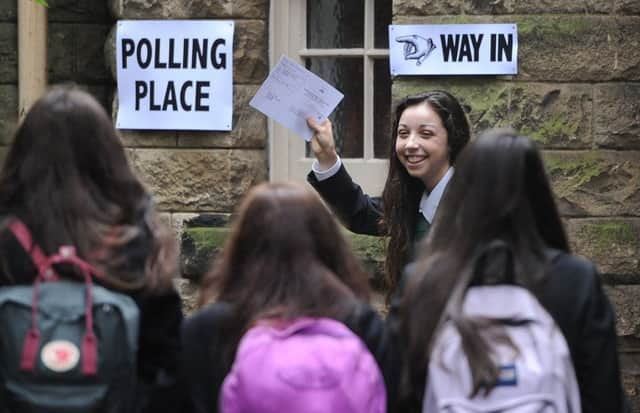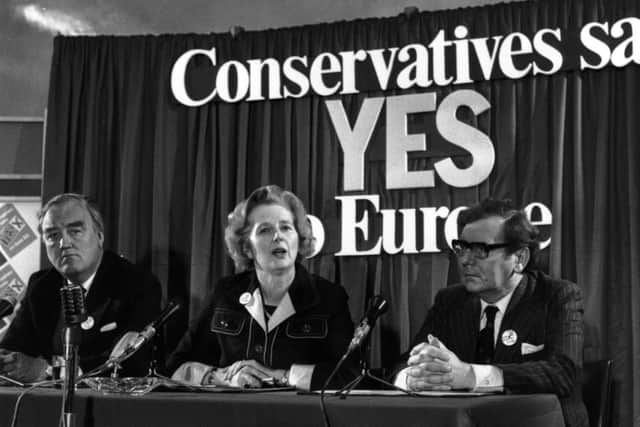Allan Massie: EU exit campaign faces many hurdles


David Cameron is just beginning his first post-election round of talks with other European leaders, but already the decks are being cleared for the EU referendum. The bill providing for it will be announced in the Queen’s Speech and tabled soon afterwards. It will address the knotty question of the franchise, and hope to settle it. The intention is that, with only minor amendments such as giving a vote to members of the House of Lords, eligibility will be the same as for the general election. This means that only British, Irish and Commonwealth citizens resident in the UK – and British citizens living abroad for less than 15 years – will have the vote. Other EU citizens living here will not be entitled to vote. Besides citizens of the Republic of Ireland eligible to vote in British elections, the only other EU citizens with a vote will be Maltese and Cypriots living here, Malta and Cyprus both being Commonwealth countries.
This decision will please those who want the UK to leave the EU. They had feared that other EU citizens resident here would have the vote, as they do in local elections and in elections for the European Parliament. Since the majority of such people might have been expected to vote to stay in the EU, their exclusion boosts the UK-Out cause.
Advertisement
Hide AdAdvertisement
Hide AdThe Labour Party is calling for 16 and 17-year-olds to be allowed to vote, as in our Scottish referendum. Labour is quite right to make this demand. While there is much inconsistency in what is legal for people of that age – have sex, leave school, yes... open a bank account, buy cigarettes, no – it was quite clear that giving them the vote in our referendum brought no difficulties and was in general a good thing. In any case, as some of us argued then, a decision of this sort – Scottish independence, EU membership – is something that matters more to the young than to the very old. They will live longer – much longer – with the consequences, either way.


Some argue of course that 16 and 17-year-olds are too immature to make a judgment on such matters. This is absurd. Intellectual or emotional maturity has never been required of voters whatever their age. Likewise, the suggestion that “young people aren’t interested in politics” should be dismissed out of hand. Some are, some aren’t, just like people of all ages. In any case, one way to arouse their interest is to involve them.
Back in the early 19th century someone remarked that the recently-independent Greeks were not yet ready for a constitution. The foreign secretary, Lord Palmerston, replied that the best way to make them ready was to give them one. Quite so.
It is unlikely that David Cameron will receive nothing but rebuffs from other European leaders. None of them wants Britain to leave the EU. So he will get enough support to enable him to lead the campaign to stay in. The referendum question will surely be framed to make this the “Yes” side. Cameron will be supported by the leaders of Labour and the Liberal Democrats (whoever these may be) and also by the leaders of the SNP and Plaid Cymru. Nicola Sturgeon may choose not to appear on the same platform as Cameron – having vilified Labour for getting in bed with the Tories last year, this might be a touch embarrassing. Still she will be making the same case, and politicians are usually quite good at shrugging off embarrassment. Certainly it is difficult to see how she can avoid lining up with Ruth Davidson, as well as with Willie Rennie and whoever emerges as the next sacrificial lamb – sorry, leader – of Scottish Labour.
The Out or No campaign has its problems. There will be no shortage of troops on the ground, in much of England anyway, but who is to lead it? The only party wholly committed to an Out vote is Ukip, but its leader, Nigel Farage, was unable, in favourable circumstances, to win Thanet South in the general election. If he couldn’t win Thanet, could he conceivably carry the country?
There will certainly be some rich businessmen ready to bankroll the Out campaign, even though business in general will be hoping for a vote to stay in the EU.
There are Tory members of Parliament in both houses who will campaign for us to leave, and it is quite likely that Cameron will permit ministers to act according to their conscience and convictions and argue for Brexit. Harold Wilson gave members of his Cabinet free rein at the only previous referendum on Europe in 1975, and Cameron will probably see the sense of doing likewise.
Last time round, mainstream political opinion was all on the pro-European side, with Wilson, Roy Jenkins, Denis Healey for Labour, Margaret Thatcher and Ted Heath for the Tories, and Jeremy Thorpe for the Liberals all singing the same song. Enoch Powell and Tony Benn formed an odd-couple alliance on the anti-European side. Both were better known, more admired (though also more disliked) than anyone the Out team may be able to field this time.
Advertisement
Hide AdAdvertisement
Hide AdThe Political Establishment in all the constituent parts of the UK, including Northern Ireland where Sinn Fein and the DUP will be in agreement, is surely going to be arguing for our continued membership of the EU. This suggests that the best chance for the Out side is to run an anti-Establishment campaign, focussing on dislike and resentment of the political class. This would surely be quite effective in parts of England, but would hardly work in Scotland where the Establishment in the form of the well-disciplined SNP can surely deliver a pro-EU majority. Admittedly some in the SNP may secretly hope that England votes No, because such a vote might precipitate the break-up of the UK. But they can hardly say so publicly since Scotland’s membership of the EU is party policy, and the issue was judged so important that Alex Salmond even assured us that he had received legal advice that an independent Scotland would automatically retain its member status.